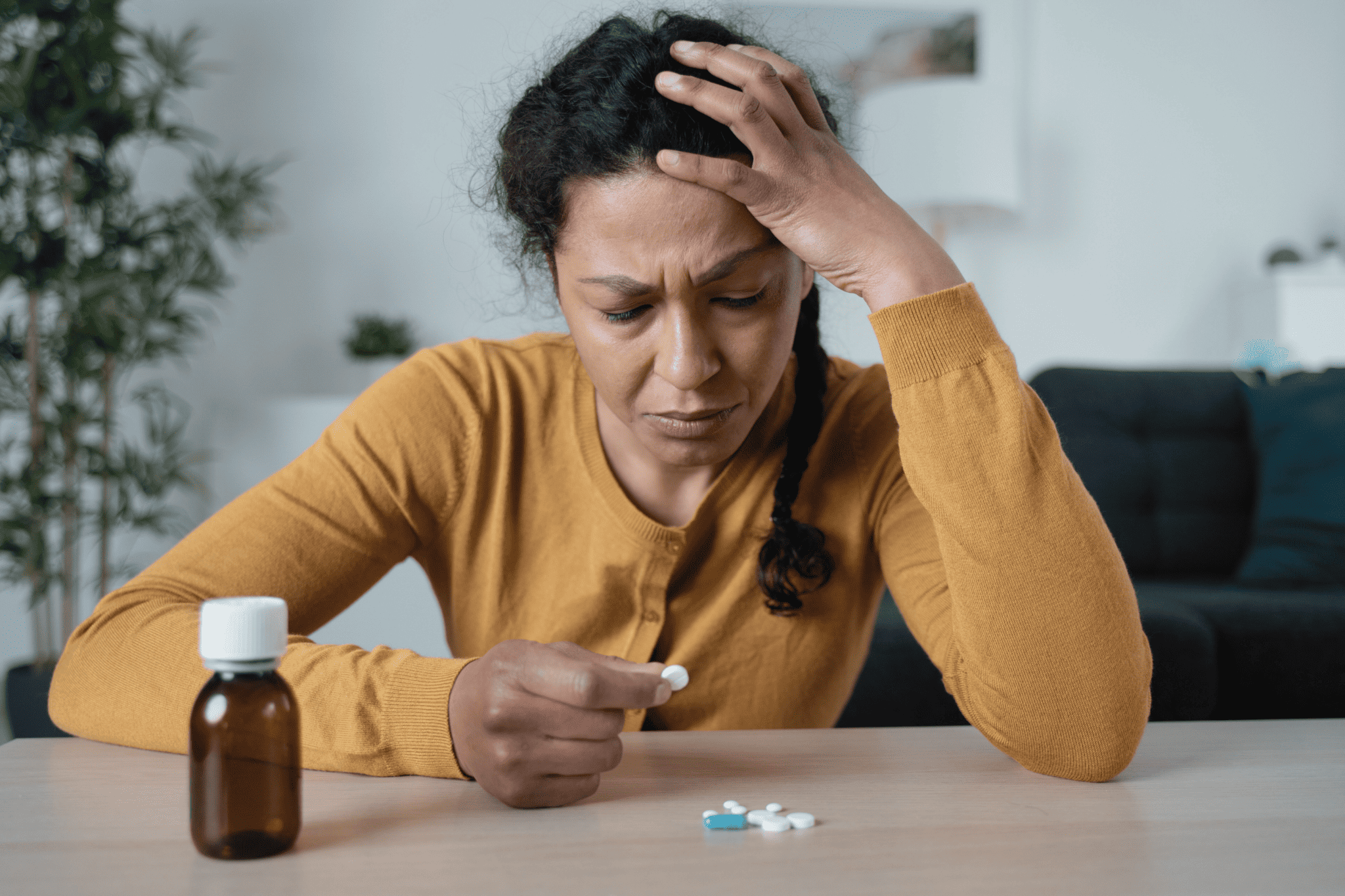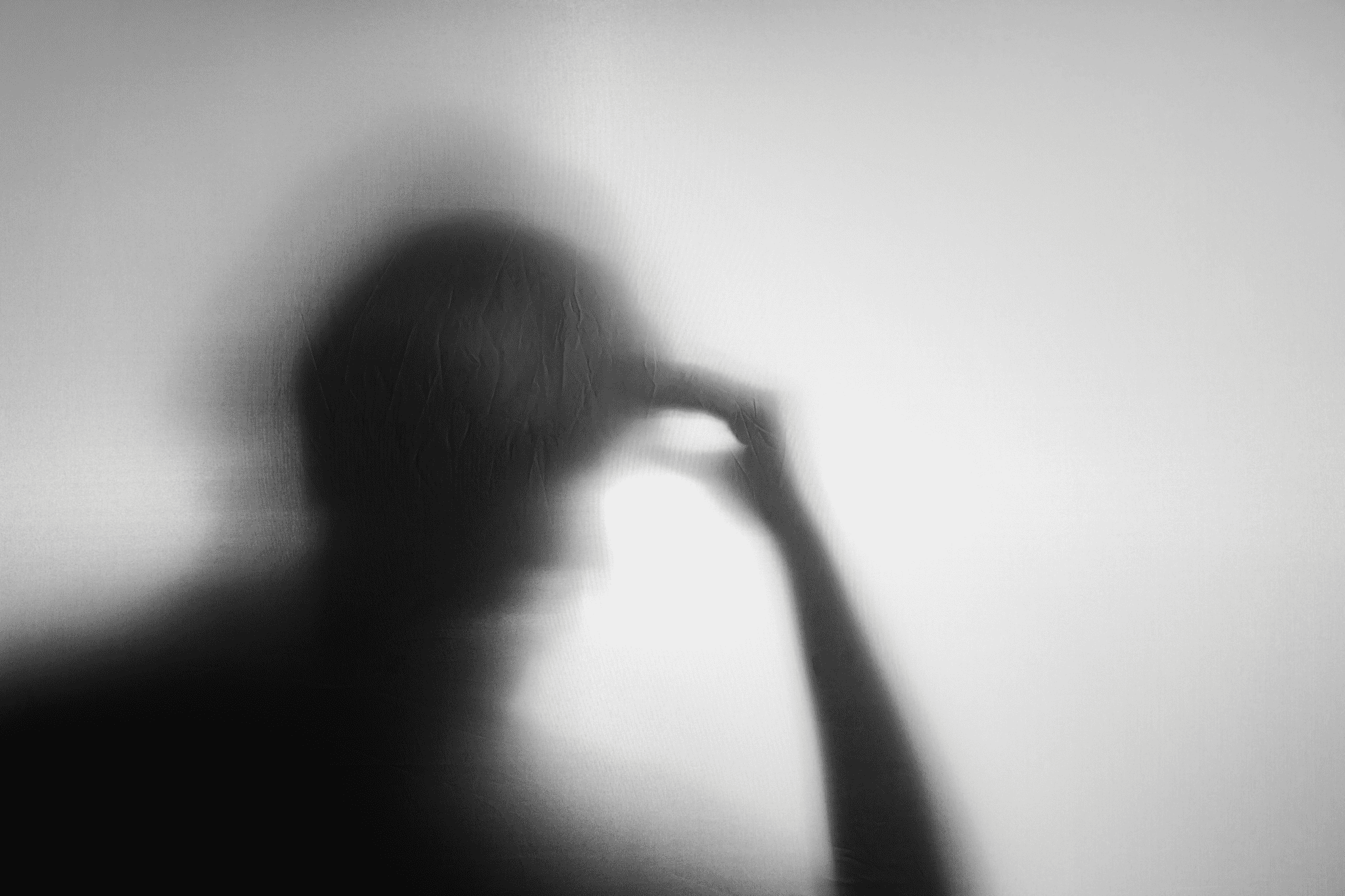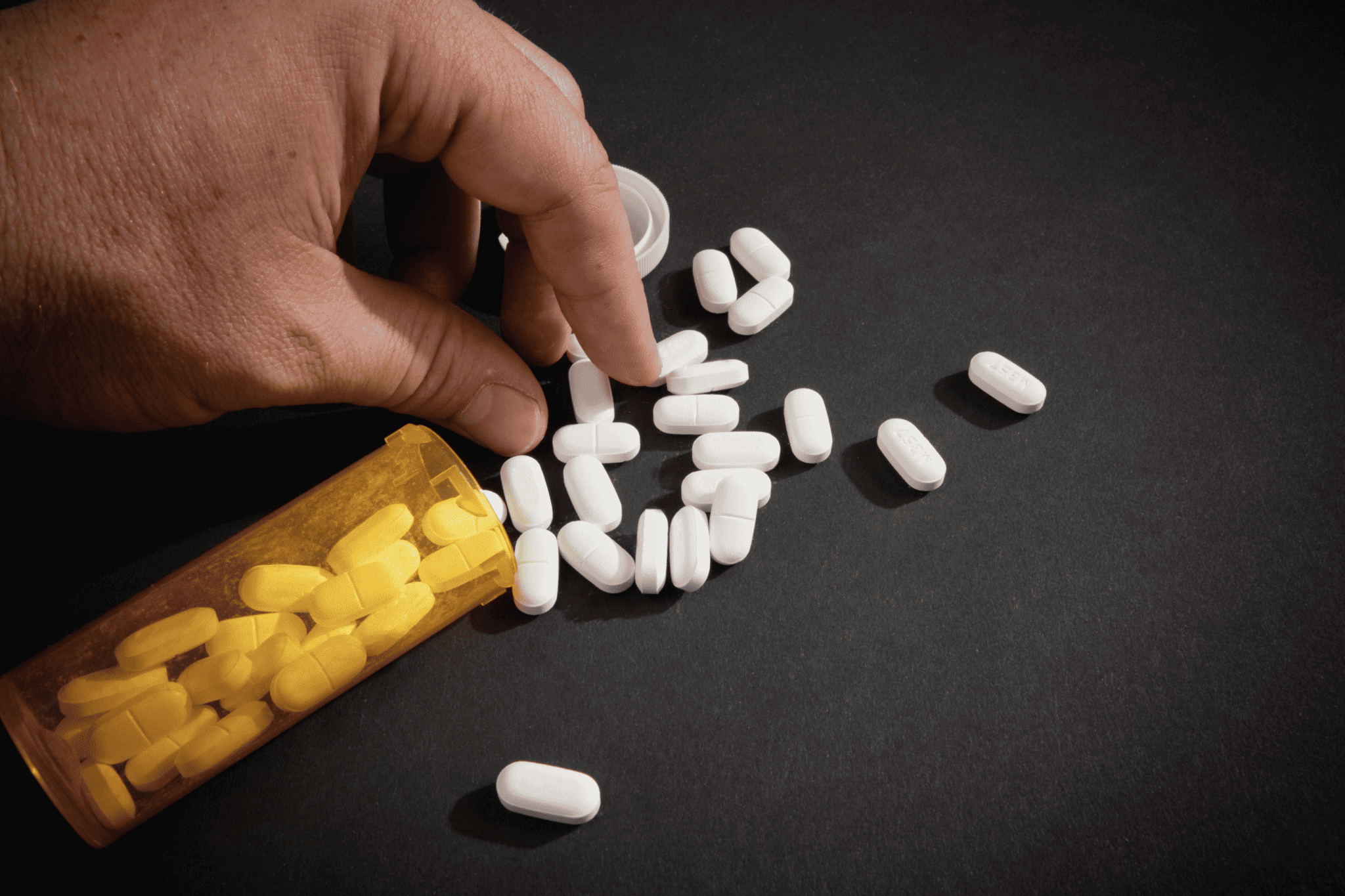Vicodin, a well-known prescription painkiller, combines hydrocodone and acetaminophen in its formulation. It’s important to note that acetaminophen is an over-the-counter medication widely used for pain relief and to manage fever, often found as the active ingredient in products like Tylenol. In contrast, hydrocodone is a potent opioid drug with a high potential for abuse and addiction.
Within the last decade, hydrocodone gained notoriety as the second most frequently prescribed opioid, and it has been frequently encountered in evidence analyzed by federal and state forensics laboratories. The misuse of hydrocodone, whether through higher doses than prescribed or more frequent use than directed, can result in severe side effects, addiction, and even overdose.
The situation prompted the Drug Enforcement Administration (DEA) to reclassify Vicodin, shifting it from a Schedule III controlled substance to a more restrictive Schedule II classification. This change aimed to impose tighter restrictions on the drug due to its substantial potential for abuse and the associated risks of addiction. It underscores the importance of utilizing Vicodin only under the guidance of a qualified prescribing physician and seeking necessary treatment for Vicodin addiction, as addiction treatment programs can be highly effective in promoting long-term recovery and leading individuals towards a sober life.
Understanding Vicodin Abuse and Addiction

Vicodin, a combination of hydrocodone and acetaminophen, shares a commonality with other opioids like oxycodone in producing side effects that encompass drowsiness, dizziness, a sense of relaxation, calmness, lightheadedness, and constipation. It’s these pain-reducing and calming attributes of Vicodin that contribute to its addictive nature. The activation of opioid receptors in the central nervous system is responsible for these effects.
Over time, with regular Vicodin abuse, individuals may develop a physical and psychological reliance on the drug, a state referred to as dependence. The continuous presence of Vicodin in their system becomes the norm, and when they suddenly cease using the drug, withdrawal symptoms can emerge. These symptoms are the body’s way of adapting to the abrupt absence of the substance and can include severe pain, withdrawal process, and withdrawal symptoms.
Impact of Physical and Chemical Dependency

Chemical dependency resulting from Vicodin addiction is a complex and challenging issue. The central nervous system becomes reliant on the presence of this prescription opioid, leading to a state where the body and mind necessitate Vicodin to function normally. This reliance translates into painful withdrawal with symptoms like sweating, anxiety, depression, cravings, and physical discomfort. Overcoming chemical dependency often requires professional support, including medication-assisted treatment in a Vicodin addiction rehab can play a vital role in this process. Understanding the profound impact of chemical dependency is fundamental to developing an effective Vicodin addiction treatment program that addresses both the physical and psychological aspects of this condition, ultimately leading individuals toward a sober life.
Physical dependence is a significant factor that can lead to addiction, which is characterized by a lack of control over drug use and continued use despite facing negative consequences. Family therapy, group therapy, and individual therapy sessions can all play crucial roles in the treatment process for Vicodin addiction, addressing not only the physical but also the emotional and social aspects of addiction. Support groups can provide valuable support during the recovery process, reinforcing the importance of family members and their involvement.
Considering the opioid epidemic and the widespread issues surrounding prescription drug abuse, the need for effective Vicodin addiction treatment programs and rehab centers has become increasingly crucial. These programs typically incorporate experiential therapies and medication-assisted treatment to address both the physical health issues and the psychological aspects of addiction. By seeking treatment for Vicodin addiction, individuals can embark on a journey toward long-term recovery, ensuring they can regain control over their lives and enjoy a sober and fulfilling existence.
Common Signs and Behaviors of Vicodin Addiction

- Cravings: Experiencing intense desires to consume more Vicodin, a clear indication of addiction’s hold on an individual.
- Deception: Lying to friends and family members about Vicodin use to hide the extent of addiction.
- Doctor Shopping: Engaging in the practice of visiting multiple doctors to obtain multiple prescriptions for Vicodin.
- Illegal Acquisition: Illegally procuring Vicodin and other opioids, often resorting to the black market to feed the addiction.
- Failed Attempts to Quit: Despite sincere efforts, the inability to quit using Vicodin, reveals the powerful grip of addiction.
- Withdrawal Symptoms: Experiencing symptoms of withdrawal when not using Vicodin, a strong sign of physical and psychological dependence.
- Tolerance: Needing to increase the dose of Vicodin over time to achieve the desired effects, a hallmark of addiction progression.
- Continued Use Despite Consequences: Continuing to use Vicodin even when faced with adverse consequences, exemplifies the loss of control associated with addiction.
Recognizing these signs and behaviors is a crucial step in addressing Vicodin addiction. If you or someone you love are struggling with Vicodin addiction, please call and speak with one of our admissions counselors today to learn about your treatment options.
Medical Detox is the First Step in Addiction Treatment

The initial challenge individuals with Vicodin addiction may encounter on their path to recovery is the formidable hurdle of withdrawal. Opioid withdrawal, while generally not life-threatening, is undoubtedly painful and mentally distressing. The spectrum of withdrawal symptoms encompasses sweating, anxiety, depression, persistent cravings, body aches, muscle pain, as well as digestive discomfort like diarrhea and vomiting.
However, there is a ray of hope in the form of drug and alcohol detox centers, which play a pivotal role in facilitating a smoother recovery from withdrawal. These specialized centers can provide you with prescribed medications, balanced and nourishing meals, and essential therapy sessions to assist you in navigating the challenging journey of withdrawal. Medications such as buprenorphine or methadone may be recommended to alleviate the severity of your withdrawal symptoms. Within the detox setting, dedicated nurses closely monitor your vital signs and assess your symptoms to ensure your safety and comfort.
The timeline for Vicodin withdrawal typically commences around 8-12 hours after your last dose, reaching its peak at 24-36 hours, and gradually subsiding within 3-7 days. Most individuals spend an average of 3-5 days in a specialized Vicodin detox facility, where they receive the essential support to manage withdrawal effectively, before making a seamless transition to a comprehensive substance abuse treatment program tailored to their needs. This journey of recovery is the first step toward achieving a sober and fulfilling life, with support groups and different opportunities for therapy sessions further enhancing the potential for long-term sobriety.
What is Vicodin Rehab Like in Massachusetts?

At Woburn Addiction Treatment, we believe in your potential for recovery from Vicodin addiction, and we’re here to guide you through a personalized treatment journey. Our objective within our drug and alcohol rehab center is to empower you to achieve and maintain sobriety by addressing the root causes of your addiction and equipping you with the healthy coping skills essential for lasting recovery.
Substance Abuse Assessment
At Woburn Addiction Treatment, the journey to recovery begins with a comprehensive substance abuse assessment administered by our experienced clinical team. This initial step is pivotal in understanding your unique needs and crafting a treatment plan tailored specifically to your circumstances.
During this assessment, our clinical experts delve deeply into the intricacies of your Vicodin usage, meticulously examining factors such as the duration and frequency of use, dosage levels, and any previous attempts at quitting. This information allows us to grasp the full scope of your addiction, enabling us to tailor our approach to your specific situation.
Group and Individual Therapy
The heart of our Vicodin rehab program revolves around behavioral therapy and counseling, both integral components of your recovery journey. These therapy sessions are thoughtfully designed, encompassing small group formats and one-on-one interactions. Through therapy, we delve into a wide array of topics, including mental health, substance abuse education, family dynamics, relationships, relapse prevention, and the development of effective coping strategies. We’re dedicated to offering you the comprehensive support and guidance necessary to foster your successful recovery and ultimately lead you toward a healthier, more fulfilling life.
Types of therapies used to treat Vicodin addiction include:
- Cognitive Behavioral Therapy (CBT)
- Dialectical Behavior Therapy (DBT)
- Relapse Prevention Therapy
- Motivational Interviewing (MI)
- Rational Emotive Behavioral Therapy (REBT)
- Group Therapy Sessions
- Family Therapy Sessions
- Holistic therapies – art, music, yoga, nutrition, exercise, meditation, and more
Aftercare Planning

Sustaining sobriety is a lifelong journey, and it necessitates ongoing care and commitment even after completing a rehabilitation program. At Woburn Addiction Treatment, we understand the significance of this post-rehabilitation phase and the critical role it plays in your recovery.
As your time in the rehab center nears its conclusion, you’ll engage in an essential process that involves the development of a personalized aftercare plan. This plan is meticulously designed to set you up for success as you step back into the broader world outside the walls of our rehab center.
The aftercare plan will be a comprehensive roadmap, outlining the strategies and resources you can draw upon to maintain your newfound sobriety. It will encompass a range of support mechanisms, which may include ongoing therapy sessions and strategies for relapse prevention. Moreover, your aftercare plan is not static; it can be adjusted and fine-tuned as your needs evolve throughout your recovery journey.
By investing time and effort into crafting a tailored aftercare plan, you are equipping yourself with a safety net, a set of tools, and a community of support that will be there to guide you as you navigate the challenges of life outside the rehab center. It’s a commitment to your well-being and a steadfast dedication to maintaining a healthy, sober, and fulfilling life in the long run.
Aftercare may involve:
- Continued counseling
- Medication management
- Alumni program
- 12-Step meetings
- Sober living
- Recovery coaching

Get The Care You Need and Deserve
Woburn Addiction Treatment is a leader in the addiction treatment field, with proven success in facilitating long-term recovery. Our team of top clinical & medical experts specializes in treating addiction coupled with mental illness, ensuring that each person receives individualized care. Call us – we’re available 24/day, 7 days/week.
Levels of Care in a Vicodin Addiction Treatment Center

Rehab is offered across multiple levels of care designed to meet your changing needs as you move through the program. Levels of care available at Woburn Addiction Treatment in Massachusetts include:
To learn which level of opioid rehab is right for you, speak with one of our dedicated admissions counselors today.
Find Treatment for Vicodin Abuse and Addiction in Massachusetts Today

At Woburn Addiction Treatment, our guiding philosophy is deeply rooted in the belief that life is a series of choices, and the skills to influence these choices are pivotal in breaking the cycle of addiction. We are dedicated to providing individuals with the tools and support needed to regain control over their lives and return to a life of purpose, free from the shackles of addiction. Our addiction treatment center in Woburn, Massachusetts, is a haven where this transformative journey unfolds.
What truly sets us apart is our exceptional and highly trained staff, comprising a multidisciplinary team of professionals. They are not just experts in their respective fields but also compassionate and committed individuals who understand the complexities of addiction and recovery. Our collective expertise enables us to guide each client on their unique path to Vicodin addiction recovery. We recognize that every journey is different, and it’s our duty to tailor our approach to meet the specific needs of each individual, addressing both the physical and psychological aspects of addiction.
Begin Recovery from Vicodin Addiction Today

Reaching out for help is a significant step, and we want to make it as accessible as possible. That’s why our admissions team is available 24 hours a day, ensuring that you can connect with us when you’re ready. Making that phone call is the first courageous stride towards reclaiming your life from the clutches of addiction. Our dedicated team is here to assess your needs, provide guidance, and support you in commencing your recovery journey. If you’re seeking a transformation toward a healthier, more purposeful life, don’t hesitate to call us today – the first step toward recovery awaits your initiative.


